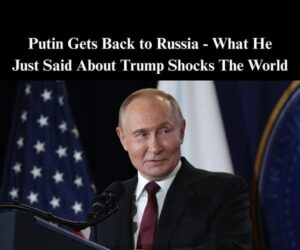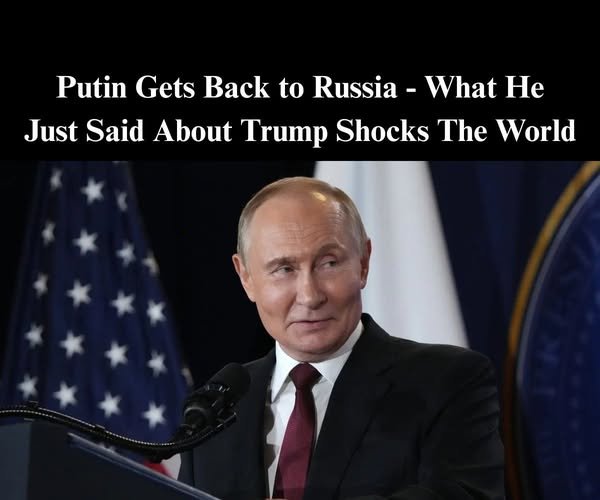In a notable diplomatic move, Russian President Vladimir Putin invited U.S. President Donald Trump to Moscow for the next round of peace talks, following a productive summit in Alaska. While no deal was reached, both leaders praised the discussions and expressed optimism.
At a joint press conference, Trump called the talks “extremely productive,” and Putin described them as “results-oriented.” Ending on a symbolic note, Putin said, “Next time in Moscow,” to which Trump responded playfully, hinting at potential political backlash but not ruling it out.

European reactions were swift. Hungarian Prime Minister Viktor Orban welcomed the summit, saying it made the world “a safer place,” amid hopes for progress on the war in Ukraine.
An Unexpected Overture: Putin’s Invitation to Trump and the Shifting Sands of Global Politics
The recent summit between Presidents Putin and Trump in Alaska, though failing to yield a concrete agreement, has unexpectedly yielded a significant development: a personal invitation from President Putin for President Trump to continue the dialogue in Moscow. This bold diplomatic gesture has sent ripples throughout the international community, prompting a range of reactions and sparking considerable speculation about its implications.
A Summit of Optimism, Despite the Lack of a Deal
Positive Spin and Future Prospects
Despite the absence of a signed agreement, both leaders adopted a remarkably optimistic tone following the Alaskan summit. President Trump, in a joint press conference, characterized the discussions as “extremely productive,” echoing sentiments expressed by President Putin, who described the talks as “results-oriented.” This shared emphasis on the positive aspects of the meeting, despite the lack of tangible outcomes, stands in stark contrast to the often-tense rhetoric surrounding US-Russia relations in recent years.
The absence of immediate concrete results, however, doesn’t diminish the significance of the event. Instead, it underscores the importance of the ongoing dialogue itself. The very act of engaging in such high-level talks, and the apparent willingness of both leaders to continue the conversation, suggests a potential shift in the geopolitical landscape.
Moscow’s Allure: The Implications of Putin’s Invitation
A Symbolic Gesture with Far-Reaching Consequences
The most striking outcome of the Alaska summit wasn’t a signed treaty, but rather President Putin’s seemingly off-the-cuff invitation to President Trump: “Next time in Moscow.” While delivered with a playful tone, the invitation carries considerable weight. It represents a significant escalation of personal engagement between the two leaders and subtly shifts the power dynamic. The invitation places the onus of refusal (or acceptance) firmly on President Trump, setting the stage for intense political scrutiny within the United States. Trump’s playful response, while hinting at potential domestic political hurdles, left the door conspicuously ajar.
Europe Reacts: A Divided Continent
Hungary’s Enthusiastic Welcome
The invitation, and the summit itself, hasn’t gone unnoticed in Europe. Reactions have been diverse, reflecting the complex and often conflicting interests at play. Hungarian Prime Minister Viktor Orban, for example, offered an enthusiastic welcome to the summit’s outcome. He lauded the meeting as a step towards making “the world a safer place,” expressing hope for further progress on the ongoing conflict in Ukraine. This position reflects Hungary’s often unique approach to foreign policy and its distinct relationship with both Russia and the United States. The divergent reactions from other European nations highlight the complexities and uncertainties surrounding the future trajectory of US-Russia relations and their global impact. The invitation to Moscow, then, represents more than a simple follow-up meeting; it’s a carefully calibrated move with potential to reshape global power dynamics.
